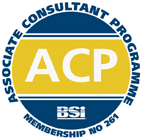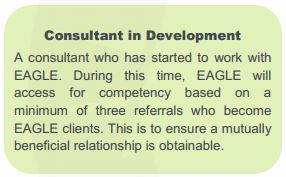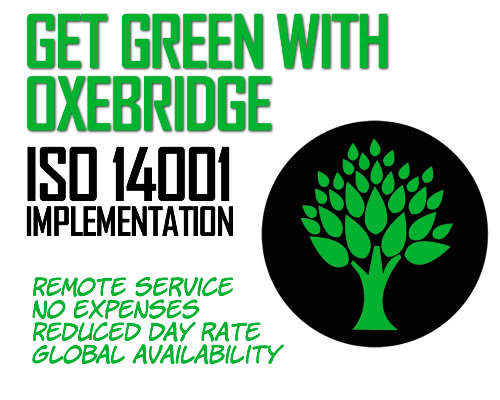 In the past there has always been a secretive, wink-wink arrangement between some consultants and certification bodies (CBs). This has been because accreditation rules for CBs prohibit them from directly marketing their services with those of a consultancy. So any such arrangements had to be under the table. Now, not so much.
In the past there has always been a secretive, wink-wink arrangement between some consultants and certification bodies (CBs). This has been because accreditation rules for CBs prohibit them from directly marketing their services with those of a consultancy. So any such arrangements had to be under the table. Now, not so much.
In the past few years, the CBs have become so emboldened that they no longer keep these arrangements under the table. They not only openly discuss them, they have created entire programs around “partnering” with consultants. The programs are clear violations of ISO 17021 accreditation rules, but lax oversight by the accreditation bodies has created an environment that not only tolerates this, but promotes it.
TUV LUV
I recently received an email from Vincent Palermo of TUV SUD, who was apparently writing to all the various ISO consultants on LinkedIn. He wanted to form a “relationship” with his CB and Oxebridge. I declined, saying Oxebridge did not enter into these arrangements because they are a conflict of interest. Mr. Palermo seems to lack the ability to read between the lines, and responded by making it worse:
I understand. When I say partner I mean share opportunities to quote. I provide my consultants with client contacts that need assistance building out their mgmt systems, in turn my consultants provide me the opportunity to quote their clients for certification needs.
After I warned him off again, saying this was a classic quid pro quo, he pressed ahead anyway:
We have a solid reputation and would appreciate any potential leads you could send our way.
You could dismiss that as just a clueless sales guy sending off misguided emails, except that it’s systematic.
BSI (duh)
 BSI has a fairly mature “Associate Consultant Program” in which it lists “partner” consultants, going so far as to issue them numbered BSI logo badges. Technically this in itself is a violation, because it requires the approved consultants to then use the BSI logo if they want to take advantage of the program. ISO 17021 says that the marketing of CBs and consultants may not be “linked.”
BSI has a fairly mature “Associate Consultant Program” in which it lists “partner” consultants, going so far as to issue them numbered BSI logo badges. Technically this in itself is a violation, because it requires the approved consultants to then use the BSI logo if they want to take advantage of the program. ISO 17021 says that the marketing of CBs and consultants may not be “linked.”
BSI claims that listing these consultants is not “recommending” them, a tortuous bit of wordsmithing that makes Lewis Carroll’s Jabberwocky suddenly seem plausible. Either way, it results in a slew of desperate consultants brandishing BSI’s logo, doing their marketing for them.
Give Us $$, Get Preferred
The other day I received a disappointing email from EAGLE Registrations’ Ben Marchant, announcing the “EAGLE Consultant Partner Program.”
A major source of business for EAGLE are referrals from consultants. Over the next few months, I will focus on improving this process to better serve both you and EAGLE, now and in the coming years.
The business development team is working on better ways to show our appreciation and to reciprocate work whenever possible. Our first step is to launch a program that I am excited about and will have direct responsibility for, the Consultant Partner Program. This program builds upon our existing procedures making them stronger to increase business opportunities for both of us.
The email even linked to this PDF flyer, calling it all a “mutually beneficial relationship.” That document is particularly troubling because it reveals a direct financial linking between EAGLE and its “preferred” consultants. (Let’s just ignore the part about how they aren’t suppose to “prefer” a consultant to begin with.)

Source: EAGLE Consultant Partner Program flyer
As a minimum entry requirement into EAGLE’s program, the consultant must have delivered at least three clients who then signed contracts for EAGLE as their ISO registrar. Only after you’ve delivered these lucrative contracts will your consultancy be suddenly “preferred.”
It’s win-win, with most of the win going to the CB. They don’t have to do any actual selling, and get to keep the commission. It’s not sure whose soul goes to Hell faster, though.
By its very structure, this attracts loser consulting firms who are willing to break the rules and engage in shady behavior, and punishes those (like Oxebridge) who refuse to play such games. That means the end result is EAGLE’s “Consultant Partner Program” will become a rogues gallery of the industry’s worst offenders.

It’s not dead, it’s resting.
“Conflict of Interest” = “Blibbity Jibbity”
This comes about as the accreditation bodies adopt a less and less restrictive enforcement on the firewall requirements between CBs and consultants. Clearly any logical, right-minded observer would understand these are conflicts of interest, and that an assessor cannot be expected to be independent if they are swapping favors (and cash) with consulting firms.
This was one of the key takeaways from the Enron scandal, where it was discovered auditors were engaged in conflicts of interest:
At the heart of these audit failures lies a set of business relationships that are bedeviled by perverse incentives and conflicts of interest. In theory, a company’s auditors are appointed independently by its shareholders, to whom they report. In practice, they are chosen by the company’s bosses, to whom they all too often become beholden. Accounting firms frequently sell consulting services to their audit clients; external auditors may be hired to senior management positions or as internal auditors; it is far too easy to play on an individual audit partner’s fear of losing a lucrative audit assignment. Against such a background, it is little wonder that the quality of the audit often suffers. [Source]
But the ISO-sphere ABs don’t see it that way. They take a literal interpretation of the rule that “the certification body’s activities shall not be marketed or offered as linked with the activities of an organization that provides management system consultancy.” Thus, if a CB markets and links their activities to more than one consultant, it’s okay. Presumably this is because the client could choose from any of the preferred consultants. Yes, of course that’s bullshit.
Next, the AB’s interpret “consulting” in a way that deviates not only from the dictionary, but from any possible logical assumptions. First, the definition was tightly crafted by ISO CASCO — a committee dominated by AB and CB members — when they wrote the ISO 17021 standard. That definition claims that consulting is limited to “participation in designing, implementing or maintaining a management system” and then includes a number of notes on what is allowed.
The previous standard upon which 17021 is based was ISO Guide 62, and the corresponding IAF Guidance Document had much more robust definition of what was, and was not, allowed. That language was subsequently diluted by ISO CASCO, led (again) by self-interested members comprising the CB and AB community. With the conversion of Guide 62 into an ISO Standard, the IAF Guidance Document became obsolete, leaving the players to interpret the rules themselves.
 Then, the ABs have been irresponsibly lax in enforcing the rules. Where, for example, ISO 17021 specifically denies CBs the ability to “give specific advice on the implementation of a QMS,” bodies like ANAB just ignore violations, arguing that it’s not “specific” if the client has an opportunity to choose alternative advice, or like the recent UKAS ruling which says that providing “templates” isn’t actually consulting, even if the CB then assesses those templates. Meanwhile, BSI has graphics on their website that just boldly link implementation, certification and maintenance, and the ABs are just fine with it.
Then, the ABs have been irresponsibly lax in enforcing the rules. Where, for example, ISO 17021 specifically denies CBs the ability to “give specific advice on the implementation of a QMS,” bodies like ANAB just ignore violations, arguing that it’s not “specific” if the client has an opportunity to choose alternative advice, or like the recent UKAS ruling which says that providing “templates” isn’t actually consulting, even if the CB then assesses those templates. Meanwhile, BSI has graphics on their website that just boldly link implementation, certification and maintenance, and the ABs are just fine with it.
Ethics, Shmethics
Of course there’s no incentive to fix this. Facing declining certification totals, and a shortage of people interested in working in ISO 9001 (much less to sell it), the CBs have to augment their sales somehow. If they can do this by recruiting duped, stupid consultants, then why not? More sales means more certifications, and more certifications means more fees paid to ANAB or UKAS. So the ABs, who have the most to gain financially from these arrangements, thus have the least incentive to enforce the rules.
I suspect things will only worsen if left in the hands of the current personalities. The next step will be to simply strip out the language restricting consulting entirely, with the next release of ISO 17021. The trick will be how to do this without it being obvious, so rather than deleting it, expect to see it further diluted. Then the ABs can still claim to be doing their jobs, even as we dip further and further into a pay-to-play scenario.
This will continue apace failing any sudden national interest. That means that until someone dies under a product made by an ISO 9001 certified company, and the mainstream press start poking around, nothing much will happen. I don’t want to see anyone dead, but I would like to see how they try to explain “it’s not a conflict of interest” to a disinterested reporter, or to Congress.
For the five or six people left in this business who are still sickened by this stuff, don’t worry. A fix is on the way. Stay tuned.
Christopher Paris is the founder and VP Operations of Oxebridge. He has over 35 years’ experience implementing ISO 9001 and AS9100 systems, and helps establish certification and accreditation bodies with the ISO 17000 series. He is a vocal advocate for the development and use of standards from the point of view of actual users. He is the writer and artist of THE AUDITOR comic strip, and is currently writing the DR. CUBA pulp novel series. Visit www.drcuba.world








